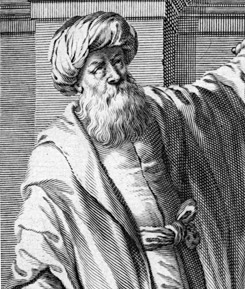Alhazen, quoted in “Muslim Journeys.” Bridging Cultures Bookshelf: Muslim Journeys. N.p., n.d. Web. 01 Nov. 2013. Also in Ibn al-Haytham Brief life of an Arab mathematician: died circa 1040 (September-October 2003) http://harvardmagazine.com/2003/09/ibn-al-haytham-html
Famous Alhazen Quotes
Abdelhamid I. Sabra, in “Ibn al-Haytham Brief life of an Arab mathematician: died circa 1040 (September-October 2003)”
Abdelhamid I. Sabra, in “Ibn al-Haytham Brief life of an Arab mathematician: died circa 1040 (September-October 2003)”
He must examine tests and explanations with the greatest precision and question them from all angles and aspects.
Ehsan Masood, Science and Islam https://www.amazon.com/Science-Islam-History-Icon/dp/1785782029/ref=sr_1_3?s=books&ie=UTF8&qid=1544708566&sr=1-3&keywords=ehsan+masood p: 169
Firas al-Khateeb, Lost Islamic History https://www.amazon.com/Lost-Islamic-History-Reclaiming-Civilisation/dp/1849043973
